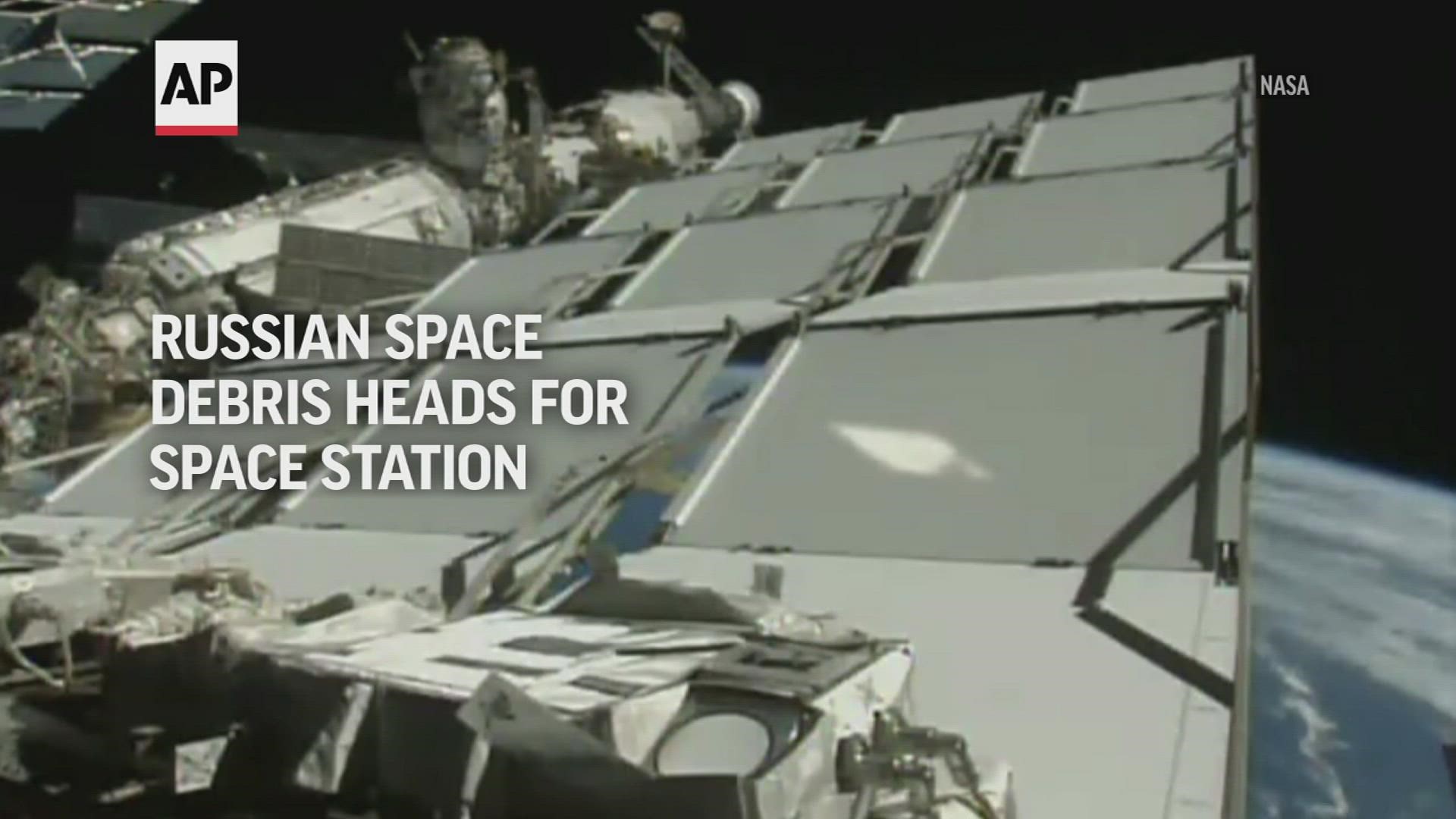ST. PETERSBURG, Fla. — Pieces of a massive Chinese booster rocket are poised to fall to Earth this weekend; however, it is unclear exactly when or where they will land.
On July 24, China launched the second module, known as the Long March 5B rocket, to its Tiangong space station.
While most of the debris of the 25-ton rocket core will burn up before touching the Earth's surface, the Aerospace Corporation predicts between 5 to 9 tons will survive.
Several organizations are tracking the object and making predictions about when and where it will land, but it's impossible to predict the exact time and place due to the varying density of the upper atmosphere.
The Aerospace Corporation has been tracking the booster rocket using sensors and sophisticated modeling to predict when the debris will make contact with earth.
The data sets used by the team are gathered by the Space Surveillance Network, which is operated by the U.S. Space Force. The SSN's sensors are at various locations around earth that observe and track objects that are larger than a softball within low Earth orbits as well as larger objects in higher orbits.
These sensors determine which orbits the objects are in, and this allows for reentry predictions.
So, you're probably wondering: what are the chances you get hit by Chinese space debris this weekend?
The short answer is, the chances are extremely low.
You are 80,000 times more likely to get struck by lightning than you are by falling space debris, Ted Muelhaupt, a consultant with The Aerospace Corporation's Center for Orbit Reentry Debris, said in a Twitter livestream Thursday.
It's extremely unlikely you're going to be hit by the falling debris — or even see them, but it's not impossible.
The number of reentries is increasing, and will likely keep increasing as more commercial activity in space happens.
Darren McKnight, a senior technical fellow at LEO Labs referenced a recent study that in the next 10 years, there's a 10% probability that someone will die on the ground from a rocket body reentering.
It's not uncommon for rocket bodies to reenter, McKnight said in the same Twitter livestream.
"We usually have about one big object reenter a week," he said.
It's the size that makes the difference.
For the first 60 years in space age, from 1959 to 2020, there have been three uncontrolled reentries where the object had a mass greater than 20 metric tons. However, in the last three years, there have been three launches and uncontrolled reentries by this Chinese rocket.
Speakers in the livestream used a lottery analogy. When you enter the lottery, usually your odds go down as the lottery gets going, McKnight said, but in the case of being hit by space debris, your odds are unfortunately going up.
In fact, in May 2020, debris from another uncontrolled Long March 5B reentry caused property damage in a village along the Ivory Coast in West Africa
"You're not going to win the lottery tonight, but somebody can," Muelhaupt said. "We do more of these, we are indeed putting somebody at risk. And it's not required. We have the technology, as the old saying goes, to avoid this. We've learned our lessons. We can control reentry."
So, why are these risks being taken at all?
Robin Dickey, an Aerospace Corporations space policy analyst, chalked it up to differing norms across the globe.
Language and culture barriers, differing national interests and assessments of risk levels mean that having a global standard when it comes to space activity is difficult.
China supports the Long-term Sustainability of Outer Space Activities guidelines, which work to minimize harm risk, but Dickey says these guidelines are not technical nor specific enough. They're also nonbinding meaning there's no consequences if the guidelines aren't followed.
Current guidelines in the United States require the risk of a casualty from a reentering rocket body to be below a 1-in-10,000 threshold.
However, Jonathan McDowell with the Harvard and Smithsonian Center for Astrophysics said China has a different attitude to public risk, but he predicts this will change.
“I do see China slowly adopting the norms of other countries in space, he said. "I think it’s important to remember that they were sort of a latecomer to space activities and so they’re catching up, and I think they're catching up in norms as well.”
In the case that these space debris make a thump instead of a splash into the ocean and cause damage or harm, the UN's 1972 Liability Convention says the launching state, China, would have absolute liability for the damages caused.
Dickey hopes that organizations will come forward and condemn China's "bad behavior," in hopes that it will allow for the establishment of stronger global norms to minimize the risk of space activity.
And on the off chance you see fallen space debris, Muelhaupt said to let the Aerospace Corporation know.
"We’d like to know because we’d like to be able to collect the debris and see if we can understand how things break up a bit better," he said.
You can use this submission form.
So, while aerospace experts won't be able to warn a region beforehand if they're going to see falling space debris, it doesn't mean you have to bunker down this weekend.
"People should know they're almost certainly safe," Muelhaupt said.
You can follow the Aerospace Corporation's predictions here.

